Guide to Traveling with Chronic Illness
Packing Essentials for a Smooth Journey
Clothing and Comfort
Packing appropriate clothing is crucial for a smooth journey, especially if you have a chronic illness. Consider the climate of your destination and your personal needs. Choose comfortable, breathable fabrics that allow for easy movement and temperature regulation. Layering is essential, as you may experience temperature fluctuations during your trip. Don't forget comfortable shoes, as walking or standing for extended periods can be challenging for some chronic conditions. Include any specialized clothing or supports you may need, such as compression garments or medical braces.
Remember to pack extra clothing for potential spills, accidents, or simply for maintaining a fresh wardrobe throughout your trip. A few pairs of socks and underwear are also helpful. Proper clothing can be essential for maintaining comfort and dignity during your travels. Plan ahead and pack with your health in mind, ensuring you have the necessary clothing for a comfortable and manageable journey.
Medications and Supplies
Bringing enough medication for the duration of your trip, plus a few extra days, is paramount. Double-check dosages and instructions, and ensure you have all the necessary medications for your condition. Keep your medications in their original containers, clearly labeled, and in a secure, easily accessible location. This will help avoid any mix-ups or accidental spills. It's essential to consult with your doctor about any potential medication interactions with travel plans.
Always carry a detailed list of your medications, including dosages, names, and instructions. Include any allergy information or necessary medical information. Pack your medications in a separate, clearly labeled, and easily accessible bag, and keep this bag with you at all times. This will facilitate quick access to your medication in case of emergencies. Consider travel-sized containers to save space and maintain organization.
Don't forget any necessary medical supplies, such as insulin pumps, inhalers, or other devices. Ensure you have enough supplies to last the entire trip, plus a small buffer. Carry extra batteries or power sources for any electronic medical devices. Pack any necessary medical equipment, such as wheelchairs or walkers, in a safe and secure manner.
Travel Documents and Support
Gathering all essential travel documents, including your passport, visa (if required), and insurance information, is vital. Make copies of these documents and keep them separate from the originals. This will help you avoid panic if one is lost or damaged. Ensure your insurance covers your trip and that you have a backup plan in case of unexpected medical issues.
Inform your doctor or a trusted healthcare professional about your travel plans and any potential medical needs during your trip. This is vital for keeping your health care team informed of your travel schedule. They can offer valuable advice and prescriptions, if needed, to ensure a safe and healthy journey.
Consider contacting your airline or hotel in advance to make any necessary accommodations for your health needs. This will help ensure a smooth and comfortable travel experience. This proactive approach helps avoid any potential surprises or inconveniences during your trip.
Important Considerations for a Smooth Journey
Prioritize your well-being and plan your travel itinerary with your health in mind. Schedule rest breaks and activities that align with your energy levels. Avoid overexertion, and don't hesitate to ask for assistance if needed. Plan for potential medical emergencies and have a backup plan in case of unexpected situations.
Consider pre-booking any necessary medical appointments, tests, or procedures during your travel dates if possible. This helps to ensure a safe and comfortable journey while minimizing any health complications or delays during your trip. This proactive approach will help avoid any health-related issues and ensure a smooth journey.
Adapting Your Travel Style and Maintaining Well-being
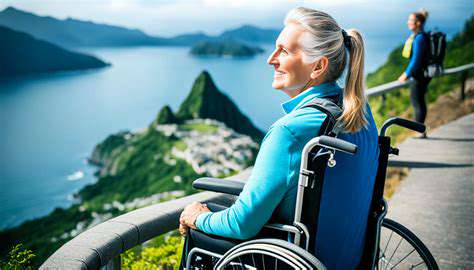
Adapting Your Travel Style to Suit Your Needs
Traveling is a fantastic way to broaden your horizons and experience different cultures, but it's crucial to adapt your travel style to your specific needs and preferences. This means considering factors like your budget, available time, and desired level of activity. A backpacking trip through Southeast Asia will require a vastly different approach than a luxurious cruise in the Caribbean. This adaptability is key to ensuring a positive and fulfilling travel experience, rather than one filled with frustration and disappointment.
Your physical capabilities and personal limitations play a significant role in shaping your travel style. If you have mobility issues, you'll need to prioritize accessible accommodations and transportation options. Similarly, if you have dietary restrictions, researching restaurants and food options in advance is essential. Planning ahead and being prepared for potential challenges is vital to a smooth and enjoyable journey. This proactive approach ensures you can fully immerse yourself in the destination, not just navigate the logistics.
Managing Your Budget for a Comfortable Trip
Budgeting is an essential aspect of travel planning, regardless of your destination or desired experience. Creating a realistic budget allows you to allocate funds for accommodation, transportation, food, activities, and souvenirs. Researching prices for flights, hotels, and local experiences in advance can help you make informed decisions and stick to your financial plan. Understanding the cost of living in your destination is critical to managing your expenses effectively.
Consider alternative accommodation options beyond traditional hotels. Hostels, guesthouses, and Airbnb rentals can often provide more affordable options without compromising comfort. Savvy travelers often find ways to save money on food by exploring local markets and trying street food. These budget-friendly options can significantly stretch your travel funds and let you experience the destination more authentically.
Packing light can also save you money, as checked baggage fees can quickly add up. Consider your clothing needs carefully, and pack versatile items that can be mixed and matched. Prioritizing experiences over material possessions can also help to manage your budget effectively.
Maximizing Your Time and Experiences
When planning your trip, consider how much time you have available. A week-long trip to a city will offer a different experience compared to a month-long stay in a rural area. Planning your activities and allocating specific time slots will help you make the most of your time. Creating a schedule, however, doesn't need to be rigid. Flexibility is key to adapting to unexpected opportunities and spontaneous adventures.
Don't be afraid to deviate from your itinerary if something interesting catches your eye. A chance encounter with a local artist or a hidden gem of a cafe can add a unique element to your experience. Embracing the unexpected is a key part of maximizing your time and experiences. Being open to serendipitous discoveries can often lead to some of the most memorable moments of a trip.
![Planning a Family Camping Trip [Beginner's Guide]](/static/images/27/2025-04/MakingtheMostofYourCampingExperience.jpg)

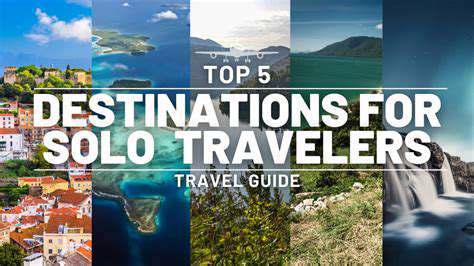

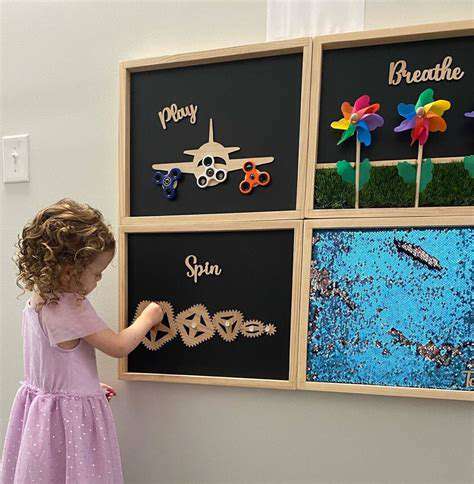
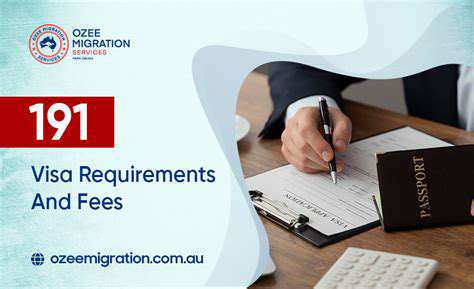

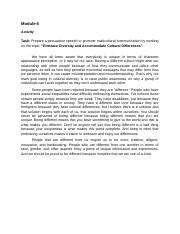



![Best Travel Credit Cards for Lounge Access [2025]](/static/images/27/2025-07/AnalyzingSpecificCardFeaturesfor2025.jpg)